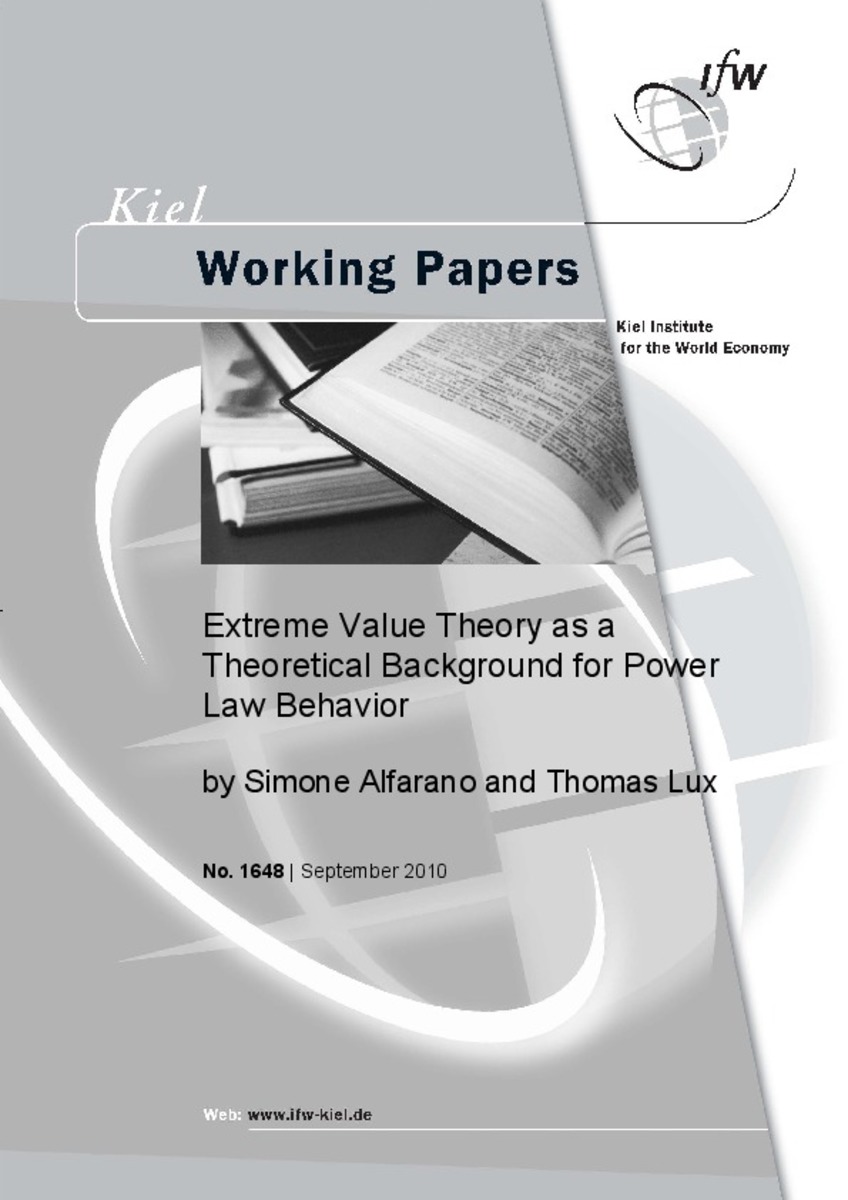Mostrar el registro sencillo del ítem
Extreme value theory as a theoretical background for power law behavior
| dc.contributor.author | Alfarano, Simone | |
| dc.contributor.author | Lux, Thomas | |
| dc.date.accessioned | 2012-03-06T12:42:03Z | |
| dc.date.available | 2012-03-06T12:42:03Z | |
| dc.date.issued | 2010 | |
| dc.identifier.citation | Kiel Working Paper (2010) núm. 1648, p. 1-10 | |
| dc.identifier.issn | 1862-1155 | |
| dc.identifier.uri | http://hdl.handle.net/10234/33018 | |
| dc.description.abstract | Power law behavior has been recognized to be a pervasive feature of many phenomena in natural and social sciences. While immense research efforts have been devoted to the analysis of behavioral mechanisms responsible for the ubiquity of power-law scaling, the strong theoretical foundation of power laws as a very general type of limiting behavior of large realizations of stochastic processes is less well known. In this paper, we briefly present some of the key results of extreme value theory, which provide a statistical justification for the emergence of power laws as limiting behavior for extreme fluctuations. The remarkable generality of the theory allows to abstract from the details of the system under investigation, and therefore allows its application in many diverse fields. Moreover, this theory offers new powerful techniques for the estimation of the Pareto index, detailed in the second part of this chapter | |
| dc.format.extent | 12 p. | |
| dc.format.mimetype | application/pdf | |
| dc.language.iso | eng | |
| dc.publisher | Kiel Institute for the World Economy | |
| dc.rights.uri | http://rightsstatements.org/vocab/CNE/1.0/ | * |
| dc.subject | Power law | |
| dc.subject | Estimation | |
| dc.subject | Tail index | |
| dc.subject.lcsh | Estimation theory | |
| dc.subject.other | Estimació, Teoria de l' | |
| dc.title | Extreme value theory as a theoretical background for power law behavior | |
| dc.type | info:eu-repo/semantics/article | |
| dc.rights.holder | © Kiel Institute for the World Economy | |
| dc.rights.accessRights | info:eu-repo/semantics/openAccess | |
| dc.relation.publisherVersion | http://www.bwl.uni-kiel.de/gwrp/files/papers/POWERneu.pdf | |
| dc.type.version | info:eu-repo/semantics/publishedVersion |
Ficheros en el ítem
Este ítem aparece en la(s) siguiente(s) colección(ones)
-
ECO_Articles [697]







